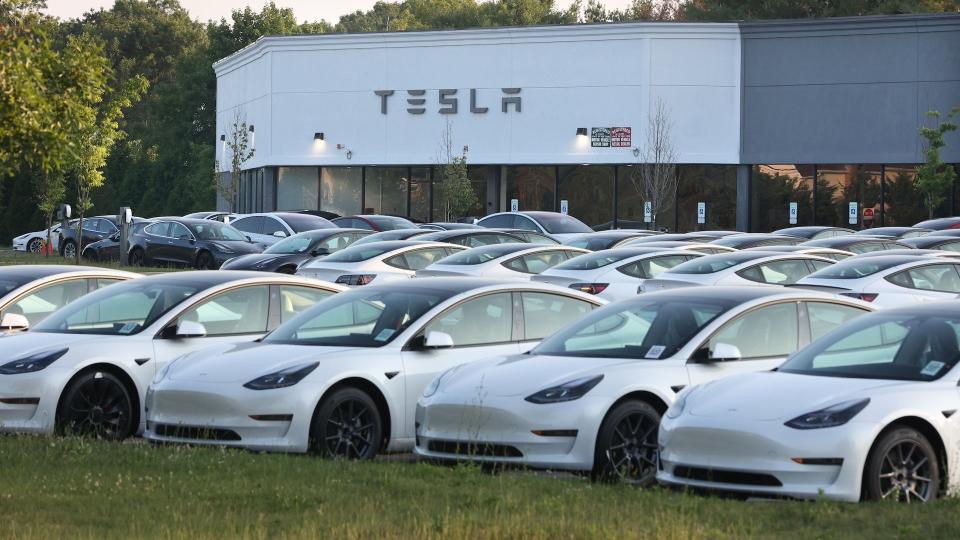The Average New EV Costs $14,000 Less Than It Did a Year Ago: KBB

Customers have been waiting since the pandemic for new car prices to chill out and come back down to normal levels. According to Kelley Blue Book, the average transaction price (ATP) for a new car in September 2023 is 24% higher than it was in 2020. However, it seems as if new-car ATP might finally be steadying and, if you're looking for an electric vehicle, even dropping significantly.
Data from KBB's parent company, Cox Automotive, shows that ATP was at its peak at the start of 2023, at almost $50,000. However, it dropped 3.4% since then and is now at $47,899. That's the first time it's been under $48,000 in over a year. So while new car prices are still significantly higher than they were in 2020, they're the best they've been in a long time.
Electric vehicle ATP dropped drastically over the past year. However, as more and more customers are looking to get into EVs, the state of ATP might look good on paper but it could be artificially enhanced. For example, EV ATP is down about $14,000 from this time last year, which sounds great, but the majority of that comes from Tesla's dramatic price cut toward the end of 2022 and the beginning of 2023. Tesla's ATP alone has dropped 22% since September 2022. However, the more new EVs that debut, the greater the choice customers have, which will increase the competitiveness of EV maker pricing and incentives, so we could be seeing the start of a trend that will lower EV ATP.

One of the reasons why ATP has gone down since January is automaker incentives. Cash incentives have been down since the pandemic due to a low supply of new cars—mostly manufacturing delays and chip shortages. Incentives are making a comeback, though, and averaged almost $2,400 in September, around 4.9% of the ATP. That's down from the 20% in September of 2020 but new-car supply is normalizing, so automakers can offer more incentives. The better the supply, the better the deals. At least that's how it's worked historically.

 Yahoo Autos
Yahoo Autos 